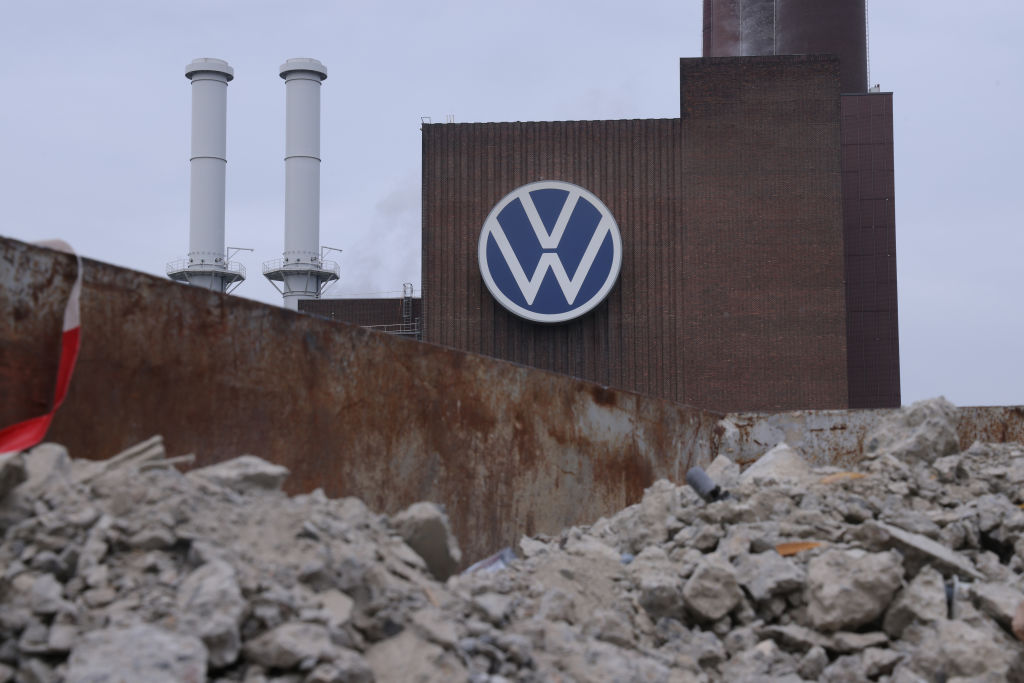In one of his Letters from Paris published many years ago in the New Yorker, Adam Gopnik observed that the French suffer from what he called a “White Helicopter” syndrome. Unlike American conspiracists who believe government agents will descend in black helicopters and take their guns away, the French assume that in times of trouble, their government will descend in white helicopters and raise everyone’s benefits. Which it often did, until it could not. France is struggling to close a massive 6.1 per cent deficit and reduce a debt pile that is approaching 110 per cent of GDP. The European Union has placed France in its fiscal doghouse, imposing an Excessive Deficit Procedure, normally a prelude to formal sanctions should the member state fail to cut spending. French bonds traded at a higher risk premium than Greek debt last week, and their spread over German Bunds has reached a 12 year high. That the markets regard Athens as more fiscally responsible than Paris must be profoundly humiliating to the heirs of de Gaulle.
This sad state of affairs is not precisely what Emmanuel Macron had in mind when he swept into the Elysée Palace in 2017. Macron was determined to earn the trust of Germany and the European Union’s other fiscal hardliners by showing them that France could get its spending under control. In exchange, he hoped Germany would agree to a full fiscal union, granting the EU all the normal tax and spending powers of a federal state. Sadly the young president discovered that his mandate ended at the precise point where it might cost his voters some real cash. New taxes on fuel sparked the Gilets Jaunes protests and an embarrassing climbdown. Raising the retirement age succeeded only by invoking Article 49.3 and bypassing Parliament altogether. An ill-advised snap election last summer left Macron with a Parliament divided between political headbangers on the Left and Right, who agree only that Prime Minister Michel Barnier must reverse his proposed budget cuts and tax rises. Another use of Article 49.3 this week will trigger a no confidence vote, which Barnier is likely to lose. New elections are not likely until next summer, leaving the EU’s second largest economy and traditional policy leader mired in prolonged dysfunction.
Clearly Macron’s plan to re-establish France as a budgetary peer of Germany has failed, taking with it any hope that the EU’s fiscal hardliners will accept joint borrowing as the answer to the union’s spending needs. No Bundesbank president would trust this unreconstructed France with a wave of Eurobond revenues. Like many ambitious reformers, Macron failed to grasp the stubborn immutability of a nation’s political economy. The modern French state is built on high government spending, a generous social welfare system and extensive government supervision of major corporations. Growing productivity, massive infrastructure investments and a healthy dependency ratio made this affordable for decades, but when productivity waned and the population aged, the system endured only through chronic deficit spending. Promises made to French citizens in good times now require state spending in excess of Eurozone budget rules and risk the wrath of the bond markets. Like a rich family in decline, France went broke slowly and then all at once. Unfortunately for Macron, his voters demand all the privileges of their country’s bygone economic glory.
But spare some sympathy for les citoyens en colère. The outsized economic presence of the French state has created political dependencies that are in other countries moderated by the private sector. Many French taxpayers depend exclusively on their state pensions and benefits to see them through old age. Because pensions are based on career income, their legal job protections become a prized asset, providing financial security that elsewhere derives from a privately managed retirement account. Cuts in state spending and reforms to labour laws pose a direct threat to their financial futures, and so they protest. The tedious fact that the money is simply not there anymore is eclipsed by their rage against a state that is failing in its duty to protect them.
Can France thrive again, or at least live within its means? Despite his promises to revive the French economy, Macron has failed to boost growth or make France attractive to foreign investment. The new industries that are spinning off tax revenues and jobs in more entrepreneurial countries are thin on the ground in France. In the absence of stronger economic growth and an expanding tax base, Macron and Barnier must squeeze more tax revenues out of a stagnant economy and cut spending to meet the demands of the EU. Beggaring grand-mère at the behest of the European Commission ensures the next president will be a populist looking to dispute the neoliberal axioms underpinning the Eurozone. For decades, the white helicopters have always arrived in time to solve political problems with air drops of state cash. Telling the French people that the white helicopters are now grounded may capsize the post-war social contract and send some rough beast slouching toward the Berlaymont.





Outdated software running Germany Inc goes for easy protection not innovation